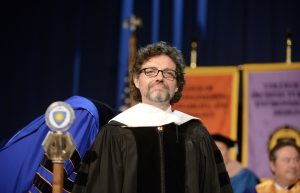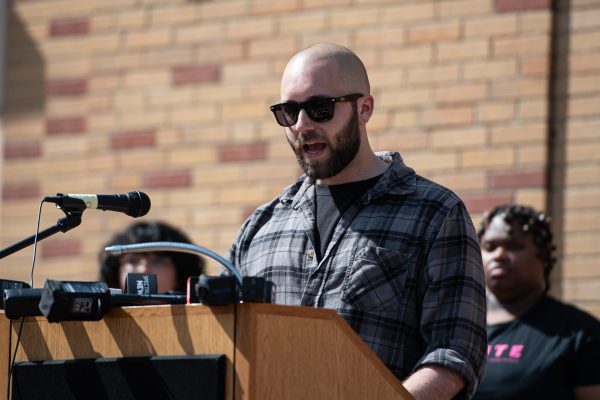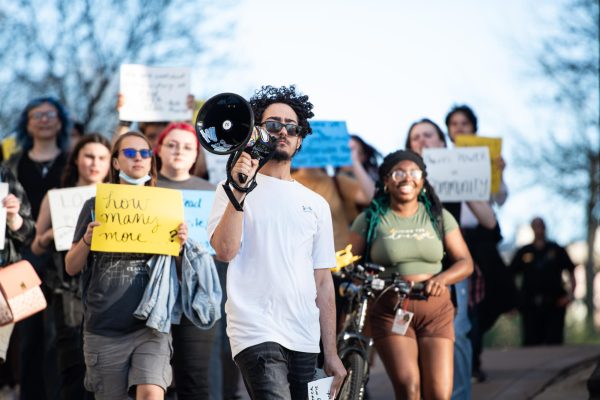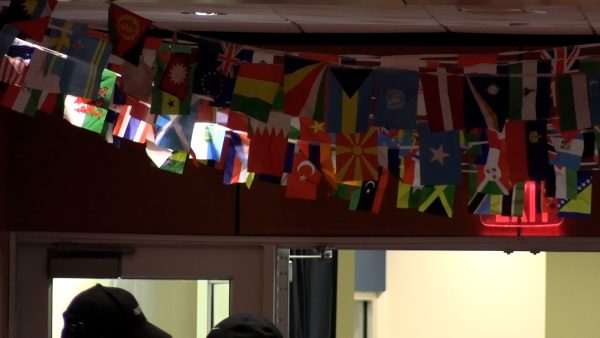Strengthening marriage was an Election Day victory
November 18, 2008
Despite a depressing election for Republicans, one issue proved to be a victory. The enthusiastic support for Barack Obama from black voters and other socially conservative demographics brought to the forefront one aspect of the social agenda of the Republican platform: traditional marriage.
This double-edged sword of encouraging voter turnout from socially conservative black Democrats was that, even though there was increased support for Barack Obama, there was also more support for California’s Proposition 8 (and like measures in other states), leading to the overturning of an earlier California Supreme Court ruling allowing for legalized homosexual marriage.
But why should anyone be in favor of Proposition 8 and other measures to define marriage as only between men and women, rather than also between homosexual couples? Doesn’t this violate their “rights?” Is this discrimination? With all the rhetoric recently, it seems we should look at this issue more closely.
One way to examine the validity of homosexual marriage is through the lens of the natural law moral theory developed by St. Thomas Aquinas and other famous philosophers in the classical tradition.
Aquinas believed that natural law was something that followed from human nature; that there is a naturally knowable rationale for moral action discernible by any human being, not restricted to any revealed religion or social group. The natural law is such that, by learning about human nature, one can discover what constitutes “good” action for a human being – what the goal or purpose of human life is. He concluded, with other classical theorists, that human nature is perfected in virtuous action in accordance with natural reason.
Aquinas held that this over-arching purpose of human life makes a study of what constitutes moral behavior possible in any aspect of human life. For Aquinas, human sexuality and the institution of marriage are intimate aspects of human nature and fall equally under the natural law.
John Finnis, a contemporary natural law theorist, argues homosexuality is inconsistent with natural law due to the absence of procreation and the relationship necessary between the opposite sexes for procreation to take place. Finnis argues that homosexual relationships do not entail the friendship a heterosexual couple experiences because the heterosexual union has the lasting bond of coming together and creating life – one cannot be divorced from the other in human sexuality. Since the natural order is for life to be created through one man and one woman in a stable relationship of love, homosexuality is, on a certain level, an activity that is contrary to the basic meaning of sexual activity.
As this entails a permanent and lasting relationship of friendship, to undermine the meaning of sexual activity similarly destabilizes one of the most important aspects of civilization: the family. The role of the family is to educate and nurture children so that they become aware of the human condition in accordance to natural law and contribute to society. The heterosexual couple is the only possible relationship that is understood as “marriage” – no other relationship, however intimate, fulfills its particular character, nor can there be a “right to marriage” if that does not fit the definition of what a marriage properly is.
Some might object that not all heterosexual relationships are fertile, and therefore the essence of marriage does not include “children.” Finnis, however, argues that even an infertile heterosexual union still fulfills the model of marital life and continues to promote societal well-being by properly educating and providing an example for the youth – it is based in the potential for a right relationship to bring forth new life, even if it never actually does so. A homosexual “marriage” is contrary to that basic potential to conceive children.
Most other arguments for allowing homosexual marriage either ask for the freedom to live life the way in which “I see fit,” or claim that not allowing homosexuals to marry is discriminatory. Both of these views, however, are shortsighted.
A consequence of living in a civilization is that a code of laws describe various acts as prohibited, but this doesn’t mean that those laws restrict freedom. To the contrary, laws are enacted to promote moral standards in society that help its citizens become better people. There is a vast difference between freedom for pursuit of happiness and pure license to any action whatsoever. In fact, most common people would prohibit murder for much the same reason.
It is also to be noted that as a result of failing to define marriage as involving a heterosexual relationship, proponents of homosexual marriage have no real ideological mechanism by which to prevent marriages devolving into conditions of perennial sexual acts with no solidarity among the parties within the marriage, or even any basic justification for preventing polygamy or polyandry. If we accept their reasoning, does it also become discriminatory to say just “two” rather than “14” is the limit to marriage?
Any attempt to legislate “civil partnerships,” adoption by homosexual partners, and definitions of marriage, which include homosexual relationships, must be stopped so that future generations will be able to pursue true happiness according to moral law and in order to promote an ever more healthy, stable society based on those principles.
Stephen Ontko is a senior economics major and a columnist for the Daily Kent Stater. Contact him at [email protected].























